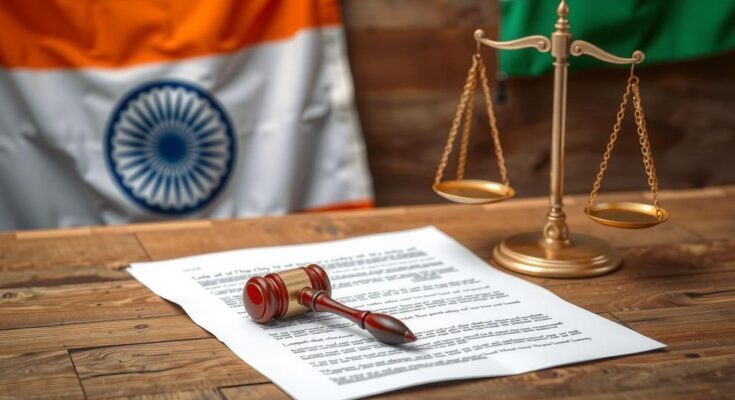X has filed a lawsuit against the Indian government over alleged unlawful online censorship as Elon Musk seeks to establish Tesla and Starlink in India. This legal challenge raises questions about government oversight and the company’s content moderation practices. Experts suggest Musk’s strong leverage in India makes it unlikely that the lawsuit will adversely affect his business interests in the region.
X, formerly known as Twitter, has initiated legal proceedings against the Indian government, claiming unlawful online content censorship. This development coincides with Elon Musk’s increasing interest in launching both Tesla and Starlink in India, raising questions about the implications of the lawsuit on his business endeavors.
During a recent meeting between Musk and Indian Prime Minister Narendra Modi in Washington, D.C., they discussed potential collaborations in artificial intelligence, space exploration, and sustainable development. However, the lawsuit filed on March 5 in Karnataka contends that India’s government is employing improper mechanisms for censoring online content, undermining established legal protocols.
The contention arises from amendments to the Information Technology Act, specifically Section 79 (3)(b), allowing the government to request content removal without judicial oversight, contradicting existing legislative safeguards. X’s claims suggest that such mechanisms expose them to arbitrary censorship, compromising their operational integrity in India. Legal expert Apar Gupta asserts that this parallel system constitutes an illegal action by the government, indicating merit in X’s lawsuit.
The Indian government insists that all entities must comply with local laws, reiterating the principle of legality. X’s allegations, while gaining public attention, are also influenced by the activity of its chatbot, Grok, which has faced scrutiny due to its controversial outputs regarding Modi’s public persona. Nonetheless, Gupta clarifies that the lawsuit exists independently of recent controversies surrounding Grok’s responses.
The lawsuit’s outcome remains uncertain, yet experts suggest it is not likely to impede Musk’s prospects in India. Notably, he boasts significant leverage due to his investments in high-growth sectors, enabling him to navigate potential tensions with the Indian government. Moreover, analysts contend that this legal dispute will have minimal impact on broader US-India relations, given the extensive cooperation between the two nations. The Indian market’s appeal and Musk’s commitment to remaining engaged are anticipated to prevail despite the ongoing legal challenges.
In summary, X’s lawsuit against the Indian government highlights significant concerns regarding online censorship and the evolving legal landscape governing social media platforms in India. While the legal proceedings may raise questions about corporate governance and transparency, experts believe Musk’s business ambitions in the country will continue largely unaffected. The broader implications for US-India relations remain minimal, underscoring the resilience of mutual interests between the nations.
Original Source: www.aljazeera.com




